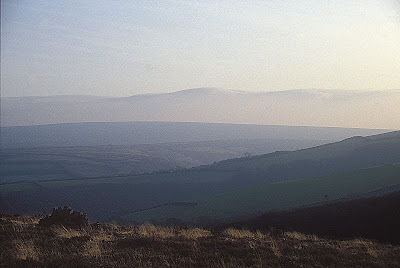I discovered this delicious true story by chance recently. It is a brief aside in the turbulent history of the Ukraine which dates from 1676 and has probably been told many times because it is illustrated by a superb painting by artist Ilya Repin, which he finished in 1891. Read the story and look at the painting, you’ll never forget either of them.
During the seventeenth century the Zaporozhian Cossacks (“Cossacks beyond the rapids”) lived in the area of the lower reaches of the Dnieper river beyond the said rapids, in the Ukraine. They were a respected political entity in their own right with a parliamentary system of government of their own, and had developed an original judicial system – the Cossack Code, which worked because of the strong social relations that existed among the Cossacks as a race. Since the 16th century they had been a military force to be reckoned with by virtue of the strength and bravery with which they challenged the authority of the various powers that swept over the region – the Polish Lithuanian Commonwealth, the Tsardom of Russia and the Ottoman Empire.
In the mid seventeenth century the Ottoman Empire was ruled by the Sultan Mehmet IV.
Sultan Mehmet IV
(1642-1693)
Although the Zaporozhian Cossacks had recently defeated the Ottoman Turkish forces, Mehmet IV sent a peremptorily worded demand that they submit to Turkish rule anyway because he would defeat them in the end. This is the text:
As the Sultan; son of Muhammad; brother of the Sun and Moon; grandson and viceroy of God; ruler of the kingdoms of Macedonia, Babylon, Jerusalem, Upper and Lower Egypt; emperor of emperors; sovereign of sovereigns; extraordinary knight, never defeated; steadfast guardian of the tomb of Jesus Christ; trustee chosen by God himself; the hope and comfort of Muslims; confounder and great defender of Christians—I command you, the Zaporozhian Cossacks, to submit to me voluntarily and without any resistance, and to desist from troubling me with your attacks.
- Turkish Sultan Mehmed IV
And this is how the Zaporozhian Cossacks replied with a stream of insults and vulgarities, making fun of the Sultan’s titles - note, written in 1676:
Zaporozhian Cossacks to the Turkish Sultan!
Thou art a Turkish imp, the damned devil's brother and friend, and a secretary to Lucifer himself. What the devil kind of knight art thou that cannot slay a hedgehog with your naked ass? The devil shits, and your army eats. Thou son of a bitch wilt not ever make subjects of Christian sons; we have no fear of your army, by land and by sea we will battle with thee, fuck thy mother.
Thou art the Babylonian scullion, Macedonian wheelwright, brewer of Jerusalem, goat-fucker of Alexandria, swineherd of Greater and Lesser Egypt, Armenian pig, Podolian villain, catamite of Tartary, hangman of Kamyanets, and fool of all the world and underworld, a fool before our God, a grandson of the Serpent, and the crick in our dick. Pig's snout, mare's arse, slaughterhouse cur, unchristened brow, screw thine own mother!
So the Zaporozhians declare, you lowlife. Thou wilt not even be herding Christian pigs. Now we shall conclude, for we don't know the date and don't have a calendar; the moon's in the sky, the year in the book, the day's the same over here as it is over there; for this kiss our ass!
- Koshovyi Otaman Ivan Sirko, with the whole Zaporozhian Host.
The Ukranian artist Ilya Repin (1844-1930)…
Self-portrait of Ilya Repin
…took ten years to paint a canvas celebrating this event – The Reply of the Zaporozhian Cossacks - which measures two metres in height and three and a half metres wide. He saw it as a study in laughter and a tribute to the free spirit and republicanism of the Cossacks, and when it was finished in 1891 the Tsar Alexander III snapped it up, paying the princely sum of 35,000 roubles. It is now exhibited in the state museum in St Petersburg.
Ilya Repin's "The Reply of the Zaporozhian Cossacks" - completed 1891.
PLEASE do click to enlarge and get the full effect.
Every detail is a joy:
*the man seated left with his moustache tucked behind his ears;
*the scribe who looks intelligent and much amused by what he's being asked to do;
*standing behind him with his hand on his chest and a glitter in his eye Ivan Sirko, who signed the letter;
*... and gorgeously attired in red, the large man whose loud belly laugh you can almost hear
The delightful tableau shows a group of Cossacks roaring with laughter and pleasure as they think up further vulgarities for the scribe to note in the reply to the Turkish Sultan. During the artist’s time the Cossacks enjoyed popular admiration and sympathy, and the picture invites you to join in and laugh with them, as Russians surely must have done.
The Zaporozhian Cossacks eventually fell under Russian influence, were forcibly disbanded in the late eighteenth century and relocated to another corner of the empire. But their most important legacy was to modern Ukraine, where their memory has driven the struggle for independence.
As for Ilya Repin, the artist, here are a few of the hundreds of gorgeous paintings he completed. Of particular note is his clever handling of the eyes and expressions therein. Again, please double click to enlarge - the larger they are the more incredible.
.
.
"Barge Haulers on the Volga"
The men seem to almost collapse forward in exhaustion under the burden of hauling a large boat upstream in heavy, hot weather. The work is both a celebration of the men's dignity and fortitude, and a highly emotional condemnation of those who sanctioned such inhumane labour. Although they are presented as stoical and accepting, the men are largely defeated; only one stands out: in the centre of both the row and canvas, a brightly coloured youth fights against his leather binds and takes on a heroic poise. (Wikipedia)
"Peasant with an evil eye"
"Religious Procession in Kursk Province"
Considered an archetype of the "Russian national style," as it displays various social classes and the tensions among them, set within the context of a traditional religious practice and united by a slow but relentless forward movement. (Wikipedia)
"Ivan the Terrible and his Son"
This canvas displayed a horrified Ivan embracing his dying son, whom he had just struck and mortally wounded in an uncontrolled fit of rage. The terrified face of Ivan is in marked contrast with that of his calm, almost Christlike son. (Wikipedia)
-oOo-
Photo Finish -
from Lonicera's digital archive
More pictures from the 'shoot' on Portishead Lake
last week...




_-_Volga_Boatmen_(1870-1873).jpg)

































